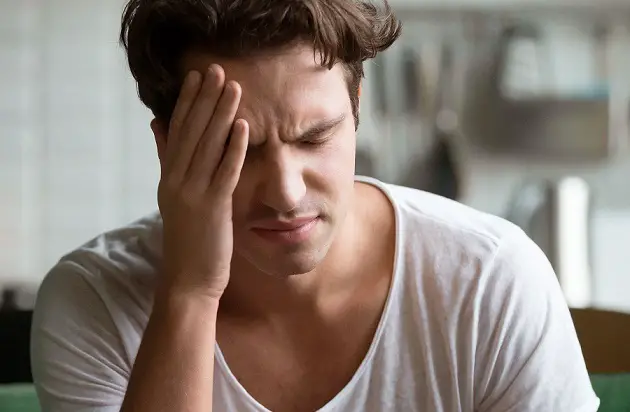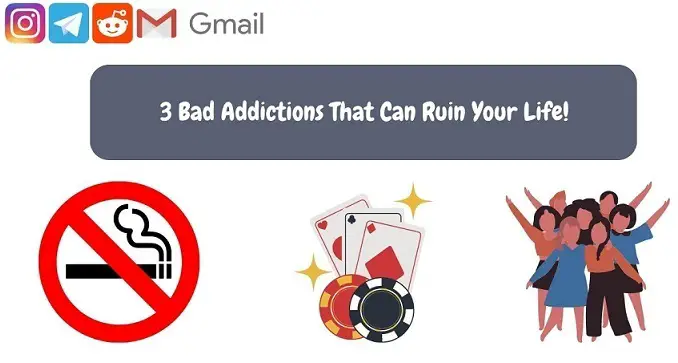
Ten Common Mental Health Problems That Most Pare Unaware
Ten Common Mental Health Problems That Most Are Unaware About
Today, almost every human being faces mental health problems but compared to physical health; mental health problems are mostly ignored due to a lack of information.
They think these visible symptoms will be of general illness, and later these symptoms become a severe mental health problems.
Research conducted by WHO for NCMH (National Care of Medical Health) states that at least 6.5 per cent of Indians suffer from some form of mental disorder.
The number of mental health problems is increasing in India because people tend to underestimate mental health problems. Here are ten mental health problems that seem familiar but are pretty severe.
1.) Depression
Speaking of mental health problems, talk about depression. It is a common mental health disorder that people underestimate. Depression is one of the leading causes of disability worldwide. In this mental disease, the mind remains very depressed continuously for several weeks or months, due to which negative thoughts come into the mind.
Sometimes depression even leads to suicide in a more severe state. Around 300 million people worldwide suffer from depression. Women are more affected by this mental disease than men.
Tip- If you or someone in your family shows symptoms of depression, talk to a family member or psychiatrist immediately. This can help you get out of depression.
2.) Bipolar Disorder
It is a complex mental disorder, also known as manic depression. Around 60 million people worldwide are affected by this mental illness. Bipolar disorder causes sudden changes in a person’s mood.
The person suffering from this mental health problem is sometimes pleased and sometimes becomes sad for no reason. Patients with bipolar disorder often complain of mood swings, anger or feeling sad.
Although its cause is not entirely known, genetics, neurochemicals, stress, etc., cause this disease.
Advice: Many effective medicines are available for treating bipolar disorder, which should be consumed only after consulting a doctor. Contact a psychiatrist.
In addition, the patient should talk to his family and friends and maintain a good relationship with them. Good relationships have a positive effect on mental health.
3.) Schizophrenia
It is a mental illness in which a person suffers from the mistake of understanding real and imaginary objects and gets lost.
Around 23 million people worldwide have this mental illness called schizophrenia. It becomes challenging for the patient suffering from this problem to work, study or interact socially.
Advice: With love and sympathy towards such a person, take the patient to a psychiatric doctor. With the love and medical advice of your loved ones, this problem can be overcome.
4.) Dementia
Around 50 million people worldwide have the mental illness of dementia. The memory of a person with dementia is so affected that he cannot perform his daily tasks properly. Humans also sometimes forget their city, which year or month is going on.
Alzheimer’s disease is the most common cause of dementia. This mental illness can also occur due to severe head injury, stroke, etc.
Advice: The treatment of dementia depends on its cause. Certain drugs and therapies are used to treat it, which are very helpful in reducing the symptoms of dementia. Apart from this, keep the patient busy with some creative work to keep the mind active.
5.) Obsessive-compulsive disorder
OCD (obsessive-compulsive disorder) is a type of mental illness in which people do the same thing repeatedly, like counting objects, repeatedly checking whether the door is closed or not, and repeatedly washing hands. Repeating the same thing or some thought comes again and again to their mind.
Due to this, the person has to face restlessness, fear and anxiety. A person with this mental disorder repeats the work repeatedly, which hurts his daily life.
Tip – OCD has not been cured to date, but treatment can help control the symptoms so that there is no disturbance in the sufferer’s daily routine. There are two main treatments, psychotherapy and medication. A combination of both is more effective.
6.) Personality Disorders
Due to mental illness, the behaviour of people with personality disorders changes so much that the person becomes disturbed and his personal and social life is affected badly.
A person suffering from this type of mental disorder does not even know what he is doing. The victim often sees fear of going into the crowd, going out of the house etc. is often seen in the victim.
Also, such a person thinks very differently, and it is tough to change the behaviour of such a person.
Advice: In this type of mental disorder, people use medicines prescribed by the doctor.
7.) Post Traumatic Stress Disorder (PTSD)
Post-traumatic stress disorder is a condition directly related to a traumatic or terrifying event happening to a person, such as sexual or physical harassment, serious accident, unnatural death of a loved one etc.
Such events have either been experienced or witnessed by the person. Although physically, such a person looks fine, mentally, they are fragile.
A person suffering from this type of mental disorder cannot recover from the horrific events affecting every aspect of his life for a long time.
Advice: Support the person who has such mental illness emotionally. Symptoms of post-traumatic stress disorder tend to subside with time and proper care.
Seek the help of a mental health specialist for a quick recovery from the condition. Its treatment also includes exercising with adequate rest and a healthy, nutritious diet.
8.) Generalized Anxiety Disorder
Generalized anxiety disorder is called unnecessary nervousness and worry about daily tasks and activities. The affected person becomes unnecessarily nervous about doing everyday tasks when he realizes that his worry is useless.
These worries are so significant that the patient cannot control them, and as a result, irritability, insomnia, tension and muscle tension surround him. Symptoms such as fatigue, nausea, nausea, headache, body ache, sweating, difficulty breathing and dizziness are seen in such a person.
Tip- If you have been battling the problem of anxiety for a long time, do not be afraid to go to a good mental health specialist. Improve your lifestyle by exercising regularly, eating healthy food, getting enough sleep, etc.
9.) Panic Disorder
It is a type of anxiety disorder. Panic disorder is the phenomenon of sudden or sudden panic due to fear of something. Sudden darkening before the eyes, rapid breathing, rapid heartbeat, and increased heartbeat are many symptoms that indicate a panic disorder.
Advice: Lifestyle changes are necessary to get rid of panic disorder. Often such a problem is also seen due to a chaotic routine, so get enough sleep by taking a morning walk and practising yoga. This will reduce stress and have a positive effect on physical-mental health.
If general discomfort is affecting your daily activities, seek medical advice.
10.) Eating Disorders
An eating disorder is a severe mental problem that causes a person to eat too much or too little or adopt unhealthy methods to cut calories, such as forced vomiting, excessive exercise, etc. Generally, there are three types of eating disorders-
- Bulimia nervosa (overeating in a short period),
- anorexia nervosa (eating too little for fear of gaining weight),
- Binge eating (frequently eating even when you are not hungry). These eating disorders can cause kidney and heart problems.
It can be difficult to control an eating disorder on your own, so seek medical attention as soon as possible.
These are all ten widespread mental health problems that affect almost anyone. These mental health problems have their own psychological and biological causes, which are treatable in time, but it is essential to talk openly about mental health problems.







